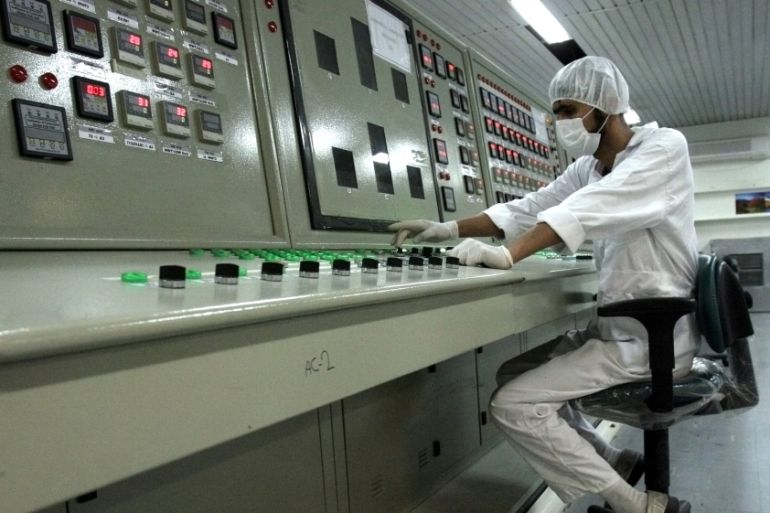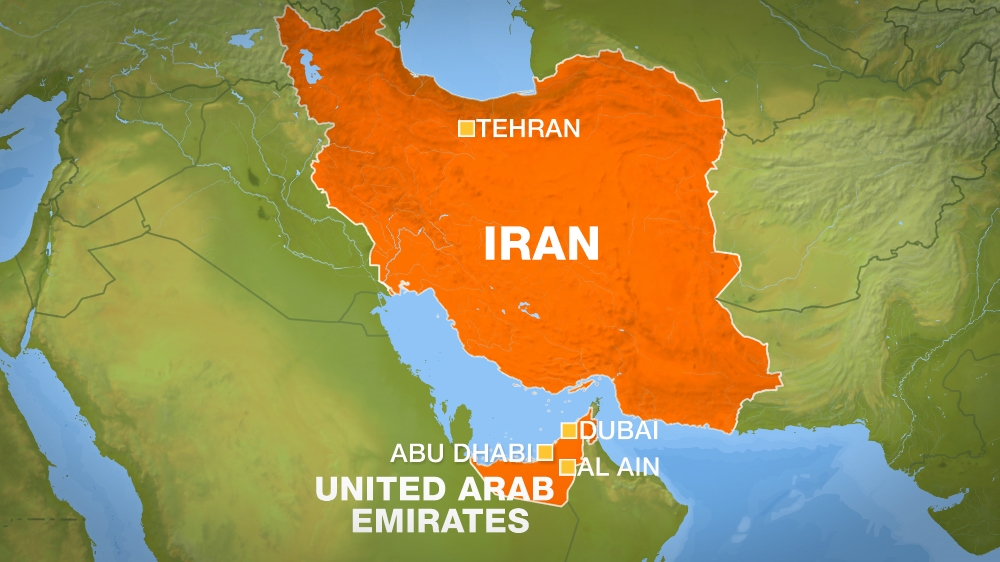Report: UAE might seek right to enrich uranium
Post Iran nuclear deal, UAE diplomat tells congressman his country no longer feels bound by previous agreement with US.

A senior United Arab Emirates official has reportedly told an influential US congressman that it might seek the right to enrich uranium.
Republican Ed Royce, the chairman of the House Foreign Affairs Committee, said Yousef al-Otaiba, UAE’s ambassador in Washington, had informed him in a telephone call that the country no longer felt bound by its previous nuclear agreement with the US.
“He told me, ‘Your worst enemy has achieved this right to enrich. It is a right to enrich now that your friends are going to want, too, and we won’t be the only country,'” Royce said in a phone interview with AP earlier in the week, elaborating on his testimony.
|
|
Tensions between the UAE and Iran – trade partners and strategic rivals – have risen in recent months after the UAE, home to hundreds of thousands of Iranian expatriates, sent troops to Yemen to bolster the government against the Iranian-allied Houthi group.
A US accord with Shia Iran – viewed by mainly Sunni Arab Gulf states as a security threat – to curb its nuclear weapons in exchange for economic sanctions relief allows the country to enrich uranium.
In a 2009 pact with the UAE, the US agreed to share materials, technology and equipment for producing nuclear energy. In the accord – known as a 123 Agreement – the UAE made a clear pledge not to enrich uranium or reprocess spent fuel to extract plutonium, two pathways to an atomic weapon.
Asked to respond by AP, the UAE embassy in Washington said the “government has not formally changed its views or perspective on the 123 Agreement or commitments”.
The UAE has said in the past that it welcomes the nuclear deal reached with Iran. However, Royce said Otaiba told him that the UAE “no longer felt bound” by those provisions of the agreement.
While he said Otaiba did not explicitly state that the UAE was walking away from them, Royce said: “I took that to mean that they had the right to do that and that it was under consideration.”
Detention row
The diplomatic development comes against the backdrop of the detention of nine Iranian teachers in the UAE.
Reuters news agency says the Iranian foreign ministry summoned the UAE charge d’affaires in Tehran on Sunday to protest against the arrests of the men, who it said had been accused of having invalid visas.
It noted that the school had been operating legally for several years and called on the UAE authorities to release the teachers.

The teachers work at an Iranian school in Al Ain, part of the emirate of Abu Dhabi, but their work permits were from Dubai, another emirate in the UAE, the Iranian ministry said.
An Iranian teacher from a different school in the UAE, who asked not to be identified, confirmed that nine teachers at the Al Ain Iranian Private School had been detained and were awaiting trial.
UAE officials did not respond to Reuters’ requests for comment.
Phone calls to the school and the court were not answered. The Iranian embassy in Abu Dhabi said it did not have further information.
Iran’s semi-official Fars news agency said on Monday the teachers were having a “bad experience” in prison even though they had previously worked in Al Ain on their Dubai visas without any problem.